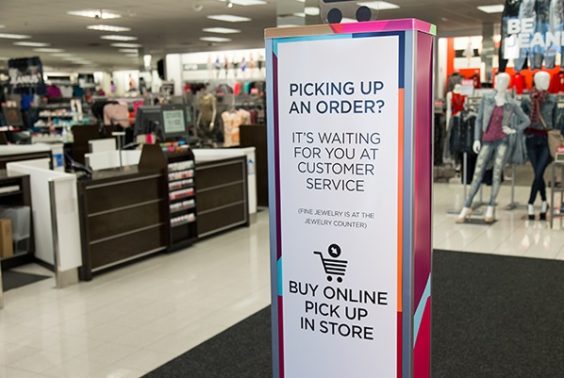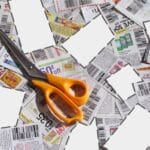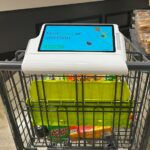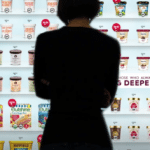As more retailers offer shoppers the ability to order items online and pick them up at their local store, there’s just one problem – someone in the store has to go find all the requested items and gather them up so they’re ready when the shopper arrives. And in a busy short-staffed store, who has time to do all that? Some stores might have to hire additional employees, or run the risk of disappointing shoppers who show up and find out their orders aren’t ready.
So IBM is proposing a new way – getting other shoppers to do the work, by bribing them with coupons.
In the latest in a series of coupon-related patent applications, IBM is now offering up an idea that it calls “Leveraging Shoppers for Store Pick Up”. The system would allow online orders to be fulfilled “without any store associate effort”, by passing off the responsibility to other customers.
And those other customers would be compensated for their efforts with coupons.
Once the proposed system determines that a customer has placed an online order for in-store pickup, “a second customer, who is in or near the venue, is identified and a notification of a promotional offer is sent to this second customer in exchange for retrieving the product,” the patent documentation reads. “When the second shopper has completed the task, this shopper is entitled to the reward or incentive offered for the job.”
Such a system could be a win-win for everyone. Online shoppers know their orders will be ready for them even if the store staff is busy, the second customer gets an unexpected deal for minimal effort, and the store saves money – and might even make money, if the coupon encourages the recipient to make a purchase they might not otherwise have made.
So how might you become the lucky recipient of these coupon offers? It’s partly a matter of being in the right place at the right time. You would have to opt in to allow the store to track your location. If you’re near the store, you might get a coupon notification on your phone, aimed at tempting you to come inside and help fulfill another shopper’s order. If you’re already in the store, along with multiple other shoppers, a more complex calculation could be done to determine which one of you gets the offer.
IBM proposes giving each customer a “score” based on a number of factors. The first, obvious, one is the customers’ location in the store. Whoever is closest to the items that need to be fetched, would get a higher score and be more likely to receive an offer. The amount of time that each customer has already spent in the store would also be a factor. “If the online order needs to be ready soon, it may not be best to select a shopper who has just entered the store,” the patent application reads.
Shopper behavior history could also be taken into consideration. “If a particular shopper has done a great job historically, that shopper may get a high score, or very favorable consideration, for selection for the next job,” the patent documentation explains. You might also get a higher score if your shopping history suggests that you’re familiar with the product being ordered, or the section of the store where it’s sold.
So whoever is assigned the highest score would be the one to receive an offer. But what kind of offer? That, too, might depend on you and your shopping history.
“The system may do a calculation as to how different options work,” the patent application explains. “Shopper A may need to be offered a coupon worth two dollars, and shopper B may need to be offered a coupon of four dollars.” You might also get a personalized offer based on your purchase history or items you’ve saved to a wish list.
The system might also take into consideration the difficulty level of the task. If there’s a large order to fulfill with several items scattered around the store, the coupon offer might be more lucrative than it would be for a smaller order. And if you pass on the offer, the store might up the ante by increasing the value of the coupon until you find it too good to resist.
IBM has been spending a lot of time thinking about coupons lately. Other IBM-submitted coupon-related patent applications that have been published so far this year include one that would allow you to request a mobile coupon by shaking your phone, another that would let you and other shoppers divvy up coupons that require the purchase of multiple items, and one that would offer you personalized grocery coupons for specific items that you regularly buy if you fail to purchase them during that particular shopping trip.
It’s not known when, where or whether any of these systems might be deployed in the future. But if IBM’s latest idea ends up becoming reality, you could soon be doing other shoppers’ shopping – and saving money for yourself in the process.
Image source: Kohl’s

















I love this idea! I am always up for shopping!